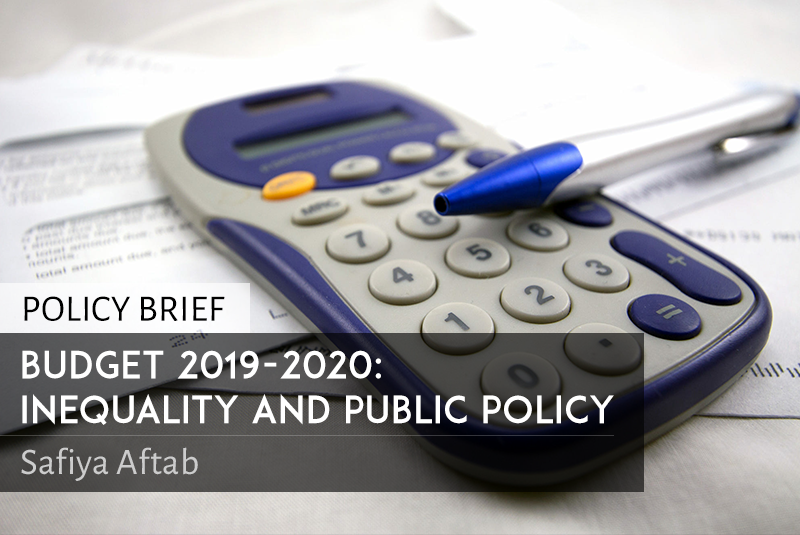Policy Brief
Budget 2019-2020: Inequality and Public Policy
by: Safiya Aftab
Date: June 18, 2019
Inequality is believed to drive conflict and destabilize society, and thus indirectly retard economic growth. On a more fundamental level, though, inequality undermines the principles of social justice and preservation of basic human rights. It is for this reason that extreme inequality, even when accompanied by high growth, is simply not acceptable. Inequality can also be perpetuated by social and cultural traditions, which result in marginalization of certain ethnic, sectarian and religious groups, or even people with certain political beliefs or affiliations to particular groups. Any form of systemic marginalization will perpetuate inequality, and eventually impact income and earning power.
Even economic inequality, which has been measured in economic literature on a regular basis over the past many decades, now includes not just income and consumption inequality, but also inequality across regions, rural and urban areas, and inequalities in provision of public services to name just a few. In short, the literature now recognizes that there are multiple forms of inequality, and that many if not all of these have an impact on household socio-economic status.
The writer is the Executive Director at Verso Consulting.

